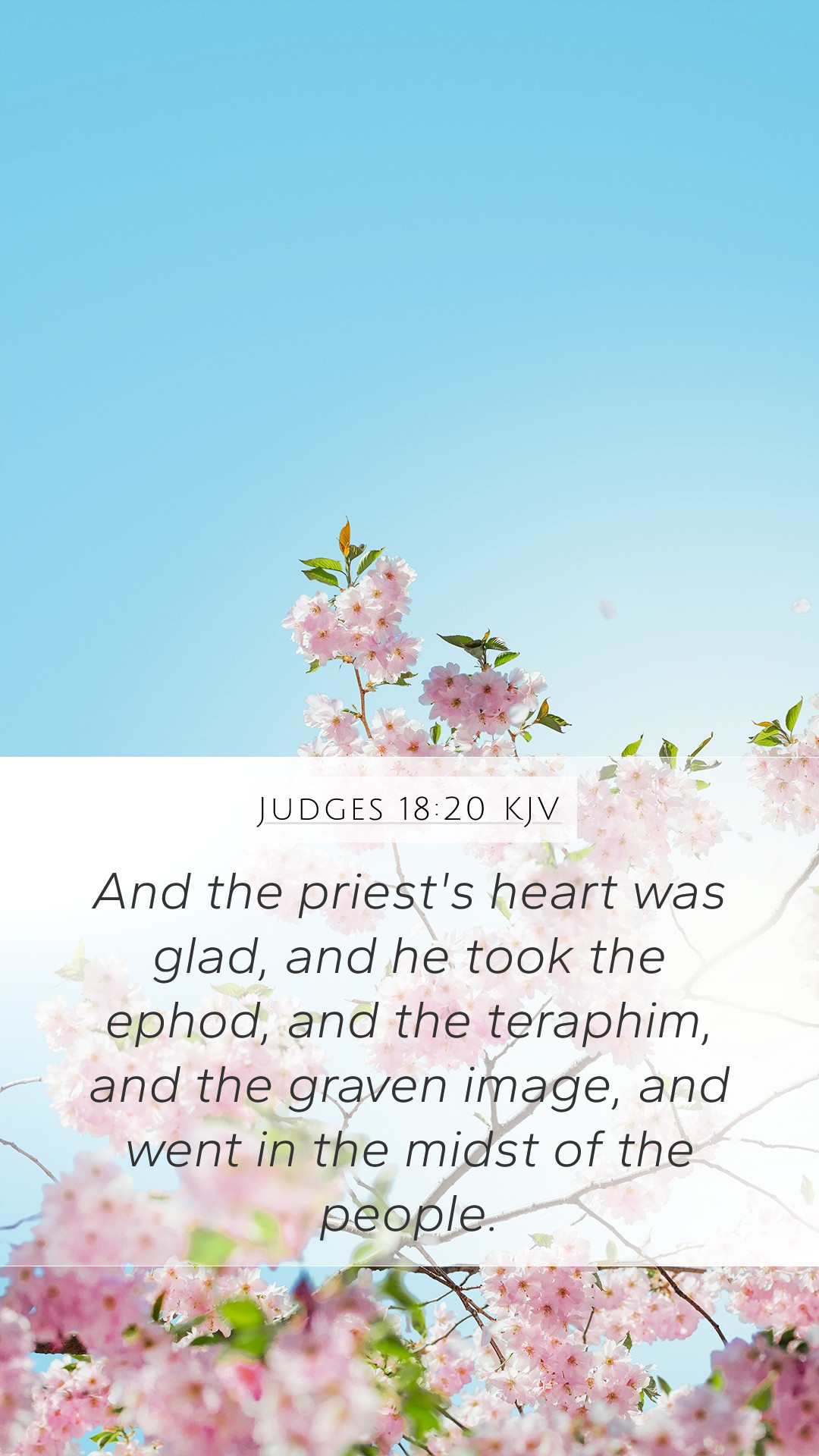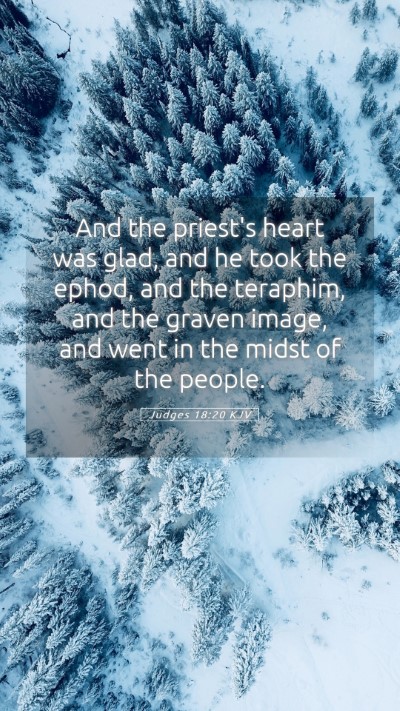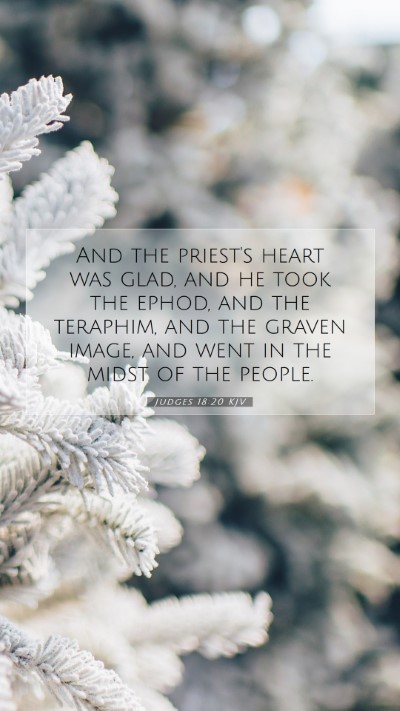Understanding Judges 18:20: A Comprehensive Bible Verse Commentary
Judges 18:20 states: "And the priest’s heart was glad, and he took the ephod, and the teraphim, and the graven image, and went in the midst of the people." This verse provides a fascinating glimpse into the spiritual practices and the religious environment of the Israelites during the time of the Judges. Through a combination of insights from public domain commentaries, this analysis will delve into the meaning of this verse, its context, and its broader implications for understanding Scripture.
Contextual Background
To fully grasp the meaning of Judges 18:20, one must consider the historical context in which it was written. The Book of Judges highlights a period in Israel's history characterized by moral decline and disobedience to God. The Israelites repeatedly turned away from God, resulting in cycles of oppression and deliverance. The specific chapter from which this verse is drawn discusses the tribe of Dan's search for a territory that would fulfill their needs.
Verse Analysis
In this section, we will delve deeper into the elements of the verse as interpreted through various commentaries:
-
Matthew Henry's Commentary:
Henry emphasizes the priest's character and his role among the tribe of Dan. His gladness, he notes, indicates a desire for personal gain and a willingness to abandon his previous commitments for the allure of the people's prospects. This reveals a troubling aspect of leadership during this chaotic time.
-
Albert Barnes' Commentary:
Barnes discusses the significance of the ephod and teraphim. These items represent attempts to seek divine guidance and favor, albeit through improper means. The priest’s acceptance of these objects signifies a departure from true worship and highlights the syncretism that was prevalent among the tribes of Israel.
-
Adam Clarke's Commentary:
Clarke explores the implications of the priest’s actions in this verse. He points out that the priest's eagerness reflects a troubling willingness to engage in idolatry, as the teraphim are associated with household gods. This, Clarke argues, illustrates how far Israel had fallen from covenant faithfulness.
Key Themes and Insights
From the aforementioned commentaries, several key themes can be drawn from Judges 18:20:
- The Nature of Leadership: The priest represents the broader failures in leadership during this period, often prioritizing personal gain over spiritual integrity.
- Idolatry and Syncretism: The mention of the ephod and teraphim underscores the challenges of true worship versus idolatrous practices within Israelite society.
- Human Desire for Guidance: The eagerness to consult these objects for divine direction illustrates a fundamental human desire for guidance, even when it diverges from God's intent.
Application and Reflection
As we study Judges 18:20, we are called to reflect on our own spiritual practices and leadership. Just as the Israelites were tempted by idolatry and false guidance, so too can modern believers face the challenge of remaining true to their faith amidst a myriad of distractions and influences.
Practical Applications for Today's Readers
For individuals engaging in Bible study, whether in groups or privately, there are several practical applications to consider:
- Examine the sources of guidance in your life. Are they rooted in authentic teachings and a true understanding of Scripture?
- Reflect on the importance of spiritual integrity, especially in positions of leadership or influence.
- Consider engaging with Bible study tools that provide historical and cultural contexts to enhance understanding of difficult passages.
Related Scripture Cross References
This verse can be linked to several other passages that explore similar themes:
- Exodus 20:3-5: God's command against idolatry.
- 1 Samuel 10:5: The use of the ephod in seeking God's guidance.
- Judges 17:5: The introduction of idolatrous practices in Israel.
Conclusion
Judges 18:20 serves as a poignant reminder of the complexities associated with the pursuit of spiritual understanding and the dangers posed by idolatry and misguided leadership. In applying the insights gained through this verse, one can attain a deeper understanding of the biblical text and its relevance to modern spiritual discussions and practices.
For further exploration and deeper analysis, engaging with additional Bible study resources and tools can elevate one’s Bible study experience and lead to a more enriched understanding of Scripture.


